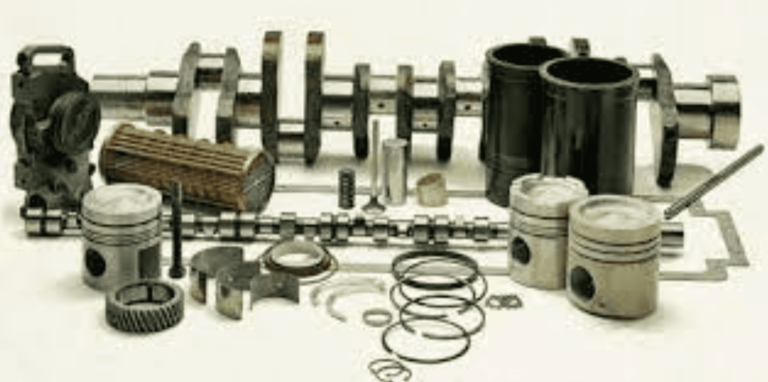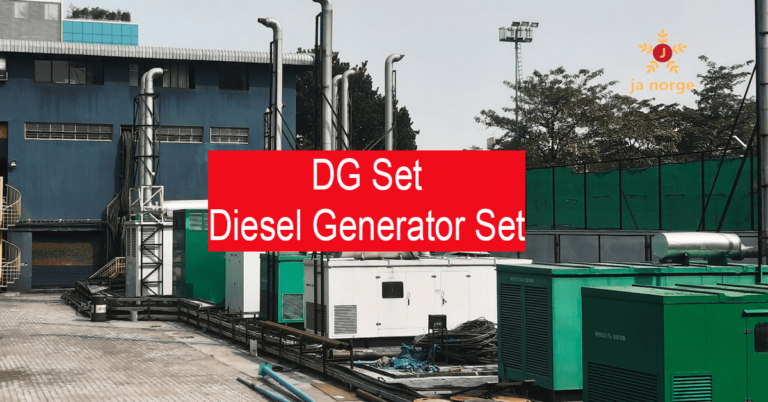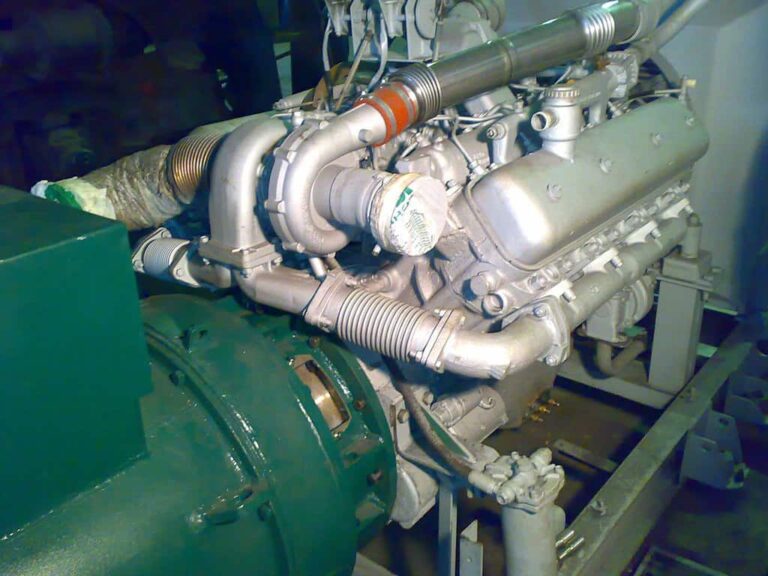In today's world, electricity has become a necessity for both domestic and commercial purposes. Unfortunately, power outages are still rampant in many parts of the world. As a result, diesel generators have become a popular solution for backup power supply. In this article, we will delve into everything you need to know about diesel generators.
What is a Diesel Generator?
A diesel generator is a device that converts mechanical energy from diesel fuel combustion into electrical energy. It comprises a diesel engine and an electric generator. The diesel engine combusts fuel, which drives the generator to produce electricity.
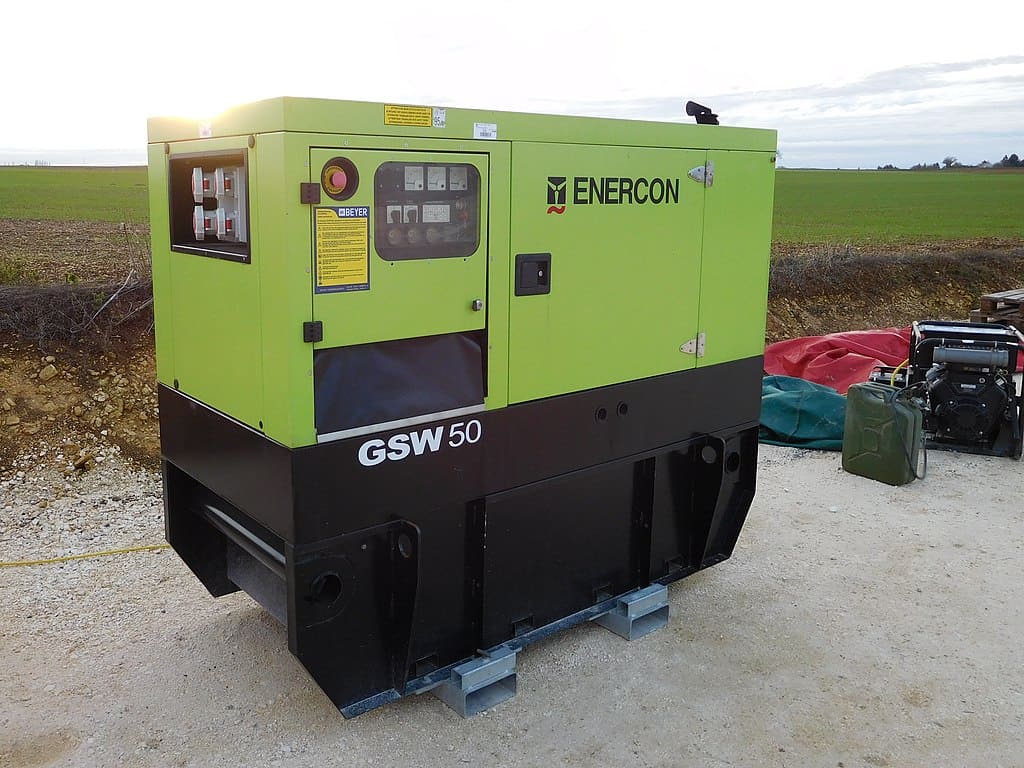
Diesel Generator Set
A diesel generator set is a complete package that includes a diesel engine, an electric generator, and other associated components. These components include a fuel system, a cooling system, a lubrication system, and an exhaust system. The diesel generator set can be used as a backup power supply during power outages or as a primary power source in areas without access to the grid.
Diesel Generator Parts and Functions
A diesel generator has several components, each with a specific function. Understanding the parts and functions of a diesel generator can help you to identify problems and perform maintenance tasks effectively. The following are the main components of a diesel generator and their functions:
Diesel Engine:
This is the heart of the generator. It burns diesel fuel to produce mechanical energy, which drives the generator to produce electricity.
Electric Generator:
This component converts the mechanical energy from the diesel engine into electrical energy.
Fuel System:
The fuel system comprises a fuel tank, fuel pump, and fuel filters. Its function is to store, transfer, and filter diesel fuel to the engine.
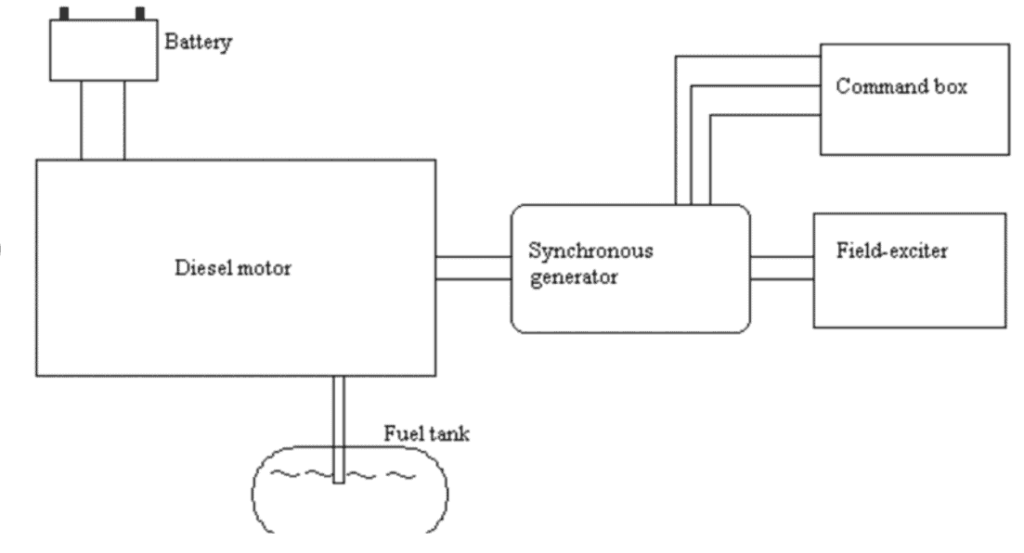
Cooling System:
The cooling system prevents the diesel engine from overheating. It comprises a radiator, a water pump, and a coolant.
Lubrication System:
This system lubricates the moving parts of the diesel engine, reducing friction and wear. It comprises an oil pump, an oil filter, and an oil sump.
Exhaust System:
The exhaust system removes the combustion gases from the diesel engine. It comprises a muffler, a exhaust pipe, and a catalytic converter.
Diesel Generator Capacity
The capacity of a diesel generator is measured in kilowatts (kW) or megawatts (MW). The capacity determines the amount of power the generator can produce. When choosing a diesel generator, it is important to consider your power needs. Factors that affect power needs include the number of appliances or equipment you want to power and their power ratings.
Diesel Generator License
A diesel generator license is required to operate a generator in India. The license is issued by the State Pollution Control Board (SPCB) under the Air (Prevention and Control of Pollution) Act, 1981. The license is mandatory for generators with a capacity of more than 125 kilovolt-amperes (kVA) and for generators used in residential, commercial, and industrial establishments.
How to get a diesel generator license
In order to operate a diesel generator, it is important to obtain a license from the appropriate regulatory agency. The process for obtaining a diesel generator license may vary depending on the location and the specific requirements of the regulatory agency.
In India, the Central Pollution Control Board (CPCB) is the regulatory agency responsible for granting licenses for diesel generator sets. The CPCB requires diesel generator owners to obtain a consent to establish (CTE) and a consent to operate (CTO) before installing and operating a generator set. The CTE and CTO can be obtained by submitting an application along with the necessary documents and fees to the appropriate state pollution control board (SPCB) or pollution control committee (PCC) in the respective state.
PDF Download: To download the pdf of the User Manual to register on the MPCB (Maharashtra Pollution Control Board) Online Portal : Download the USER MANUAL PDF or visit the website by clicking here
The application for CTE and CTO will typically require information such as the capacity of the generator, the type of fuel used, and the location of the installation. The application may also require additional documents such as an environmental impact assessment report, a site plan, and proof of ownership or lease of the property.
For new users, the government has made it mandatory to register on its Maitri Portal to register for Consent, to register on Maitri Portal Click here
After submitting the application, the regulatory agency will conduct an inspection of the site to ensure that the generator set meets the necessary safety and environmental standards. If the generator set meets the requirements, the regulatory agency will grant the CTE and CTO, allowing the owner to install and operate the generator set legally.
It is important to note that operating a diesel generator set without the necessary licenses and approvals can result in fines and penalties. Therefore, it is important to obtain the necessary licenses and approvals before installing and operating a diesel generator set.
Diesel Generator HSN Code
HSN stands for Harmonized System of Nomenclature. The HSN code is a 6-digit code used to classify goods and services for tax purposes. The HSN code for diesel generators is 8502.
Diesel Generator Manufacturers in India
India has a thriving diesel generator industry. The following are some of the top diesel generator manufacturers in India:
- Mahindra Powerol: Mahindra Powerol is a division of Mahindra & Mahindra Ltd. It offers a range of diesel generators from 5 kVA to 2500 kVA.
- Kirloskar Electric Company: Kirloskar Electric Company is a leading manufacturer of power generators and electrical transformers. It offers diesel generators from 5 kVA to 2000 kVA
- Cummins India: Cummins India is a subsidiary of Cummins Inc., a global leader in power solutions. It offers diesel generators from 7.5 kVA to 3750 kVA.
- Ashok Leyland: Ashok Leyland is a leading manufacturer of commercial vehicles and power solutions. It offers diesel generators from 10 kVA to 2250 kVA.
- Caterpillar India: Caterpillar India is a subsidiary of Caterpillar Inc., a global manufacturer of construction and mining equipment. It offers diesel generators from 13 kVA to 7150 kVA.
- Kirloskar Electric Company
- Mahindra Powerol
- Ashok Leyland
- Cummins India
- Caterpillar India
- Greaves Cotton
- Kohler Power India
- Cooper Corporation
- Sterling Generators
- Honda Siel Power Products
- Escorts Group
- Jakson Group
- Birla Power Solutions
- Sudhir Power
- Elgi Equipments
- JCB India
- Atlas Copco
- Kirloskar Oil Engines Limited
- Mitsubishi Heavy Industries India
- MTU India (Rolls-Royce Power Systems AG)
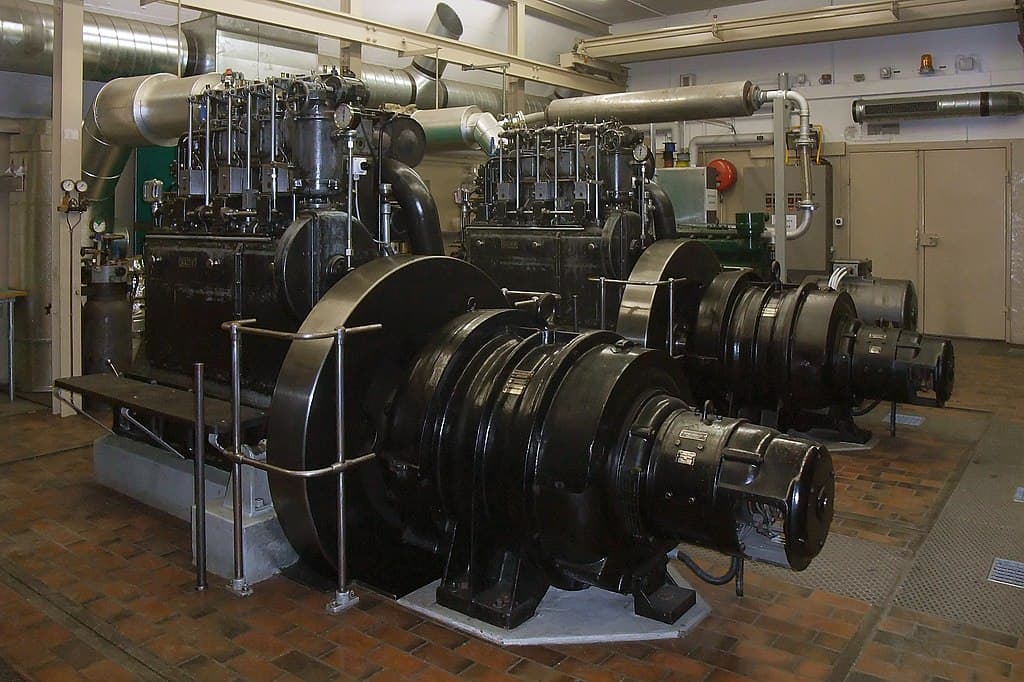
Buying or Renting a Diesel Generator Set
10 things to consider before buying or renting a diesel generator set
- Power Requirements: Determine the power requirements of your application before choosing a generator. Consider both the peak and continuous power needs.
- Runtime: Decide how long you need the generator to run before refueling. This will help determine the size of the fuel tank.
- Fuel Efficiency: Consider the fuel efficiency of the generator to ensure you are getting the best value for your money.
- Noise Level: If you plan to use the generator in a residential or noise-sensitive area, choose a generator with a low noise level.
- Emissions: Consider the emissions output of the generator to ensure it meets local regulations and is environmentally friendly.
- Maintenance Requirements: Choose a generator with low maintenance requirements to minimize downtime and repair costs.
- Reputation: Choose a reputable manufacturer or dealer to ensure quality and reliability.
- Price: Consider the upfront cost of the generator and balance it against long-term operating costs.
- Rental Options: If you need the generator for a short-term project, consider renting instead of buying.
- Support: Choose a manufacturer or dealer that offers excellent customer support and technical assistance. This can be crucial in the event of a breakdown or emergency situation.
Buying cost and renting cost of a diesel generator
The buying cost and renting cost of a diesel generator will depend on several factors, such as the size, capacity, brand, and features of the generator. Generally, the buying cost of a diesel generator is higher than the cost of renting a generator.
The buying cost of a diesel generator can range from a few thousand dollars for a small generator to several hundred thousand dollars for a large industrial generator. In addition to the upfront cost, there may be additional costs for installation, maintenance, and fuel.
On the other hand, the cost of renting a diesel generator can vary depending on the rental period, the size and capacity of the generator, and the location. Generally, the rental cost is calculated on a daily, weekly, or monthly basis. The rental cost of a small generator can range from $50 to $200 per day, while the rental cost of a large industrial generator can range from $500 to $2,000 per day.
When deciding whether to buy or rent a diesel generator, it is important to consider the specific needs of the application, as well as the cost-benefit analysis of each option.
For short-term projects or temporary power needs, renting may be the more cost-effective option. However, for long-term projects or applications with a continuous need for backup power, buying a diesel generator may be more cost-effective in the long run.
Buying vs Renting a diesel generator set
When considering a diesel generator set, one of the most important decisions is whether to buy or rent the generator. Both options have their advantages and disadvantages, and the decision will depend on the specific needs of the application.
Buying a diesel generator set offers long-term benefits. Once purchased, the generator becomes a capital asset that can be used over an extended period. The generator can be customized to the specific requirements of the application, and can provide reliable power supply over a long period of time. Buying a diesel generator set can be a good investment for applications with continuous power needs or for businesses that require backup power on a regular basis.
However, buying a diesel generator set requires a significant upfront investment. In addition to the purchase cost, there may be additional costs for installation, maintenance, and fuel. The generator may also require additional space for storage and may become obsolete over time.
Renting a diesel generator set offers a more flexible and cost-effective option for short-term projects or temporary power needs. Renting allows businesses to access a generator set without the significant upfront investment. Rental companies provide a range of generator sets with different capacities and configurations, and can deliver the generator directly to the site. Renting a generator set can be a good option for businesses that require backup power for events or short-term projects.
However, renting a diesel generator set can become more expensive over time if used for long periods. Rental companies may also have limitations on customizing the generator set, which may not be suitable for applications with specific power requirements. Additionally, rental companies may have limited availability during high demand periods.
In summary, the decision to buy or rent a diesel generator set will depend on the specific needs of the application. Buying a generator set can offer long-term benefits, but requires a significant upfront investment. Renting a generator set can offer a more flexible and cost-effective option for short-term projects, but can become more expensive over time.
Range of diesel generator
Diesel generators are available in a wide range of sizes and capacities to meet different power requirements. The range of diesel generator sets varies from a few kilowatts to several megawatts.
Small diesel generators are typically used for residential or small commercial applications, such as backup power for homes or small businesses. These generators have a power output of up to 50 kW.
Medium-sized diesel generators are used for larger commercial applications, such as hospitals, data centers, and manufacturing facilities. These generators have a power output of 50 kW to 1000 kW.
Large diesel generators are used for industrial and power plant applications, such as mining operations and large-scale manufacturing facilities. These generators have a power output of 1000 kW + to several megawatts.
The capacity of a diesel generator is typically measured in kilowatts (kW) or kilovolt-amperes (kVA). The size and capacity of the generator needed will depend on the power requirements of the application. It is important to choose the right size and capacity of the generator to ensure a reliable and efficient power supply.
Diesel Generator FAQs
- What is a diesel generator?
A diesel generator is a power generator that uses diesel fuel to generate electricity. It consists of a diesel engine and an alternator that converts mechanical energy into electrical energy. - What are the parts and functions of a diesel generator?
The main parts of a diesel generator include the engine, alternator, fuel system, cooling system, exhaust system, and control panel. The engine provides the mechanical energy, while the alternator converts it into electrical energy. The fuel system supplies diesel fuel to the engine, and the cooling system prevents overheating. The exhaust system removes harmful gases from the engine, and the control panel monitors and controls the generator. - What is the capacity of a diesel generator?
The capacity of a diesel generator is measured in kilowatts (kW) or kilovolt-amperes (kVA). It ranges from a few kVA to several thousand kVA, depending on the power requirements. - Do I need a license to operate a diesel generator?
Yes, you need a license to operate a diesel generator in India. The license is issued by the State Electricity Board or the Electrical Inspectorate. It is mandatory for generators above a certain capacity, which varies from state to state. - What is the HSN code for diesel generators?
The HSN code for diesel generators is 8502. It is used for the classification of goods for taxation purposes. - What are the advantages of diesel generators?
Diesel generators are reliable, efficient, and cost-effective. They are easy to maintain and can run for long hours without interruption. They are also more fuel-efficient than gasoline generators and produce less noise and vibration. - What are the disadvantages of diesel generators?
The main disadvantage of diesel generators is their high initial cost. They are also not as environmentally friendly as some other types of generators, as they produce emissions and noise. - Can I rent a diesel generator?
Yes, you can rent a diesel generator from various manufacturers and dealers. Renting a generator is a cost-effective solution for short-term power needs. - How do I choose the right diesel generator?
To choose the right diesel generator, you need to consider factors such as power requirements, runtime, fuel efficiency, noise level, and maintenance requirements. It is also important to choose a reputable manufacturer or dealer. - How do I maintain my diesel generator?
To maintain your diesel generator, you should perform regular maintenance tasks such as oil changes, filter replacements, and fuel system cleaning. You should also monitor the generator's performance and address any issues promptly.
Conclusion
Diesel generators have become an indispensable source of backup power supply in many parts of the world. They are reliable, efficient, and cost-effective. When choosing a diesel generator, it is important to consider factors such as capacity, licensing requirements, HSN code, and manufacturers. Additionally, it is important to perform regular maintenance tasks to ensure the generator's optimal performance. Whether you choose to buy or rent a diesel generator, it is essential to choose a reputable dealer or manufacturer to ensure that you get a quality product.

